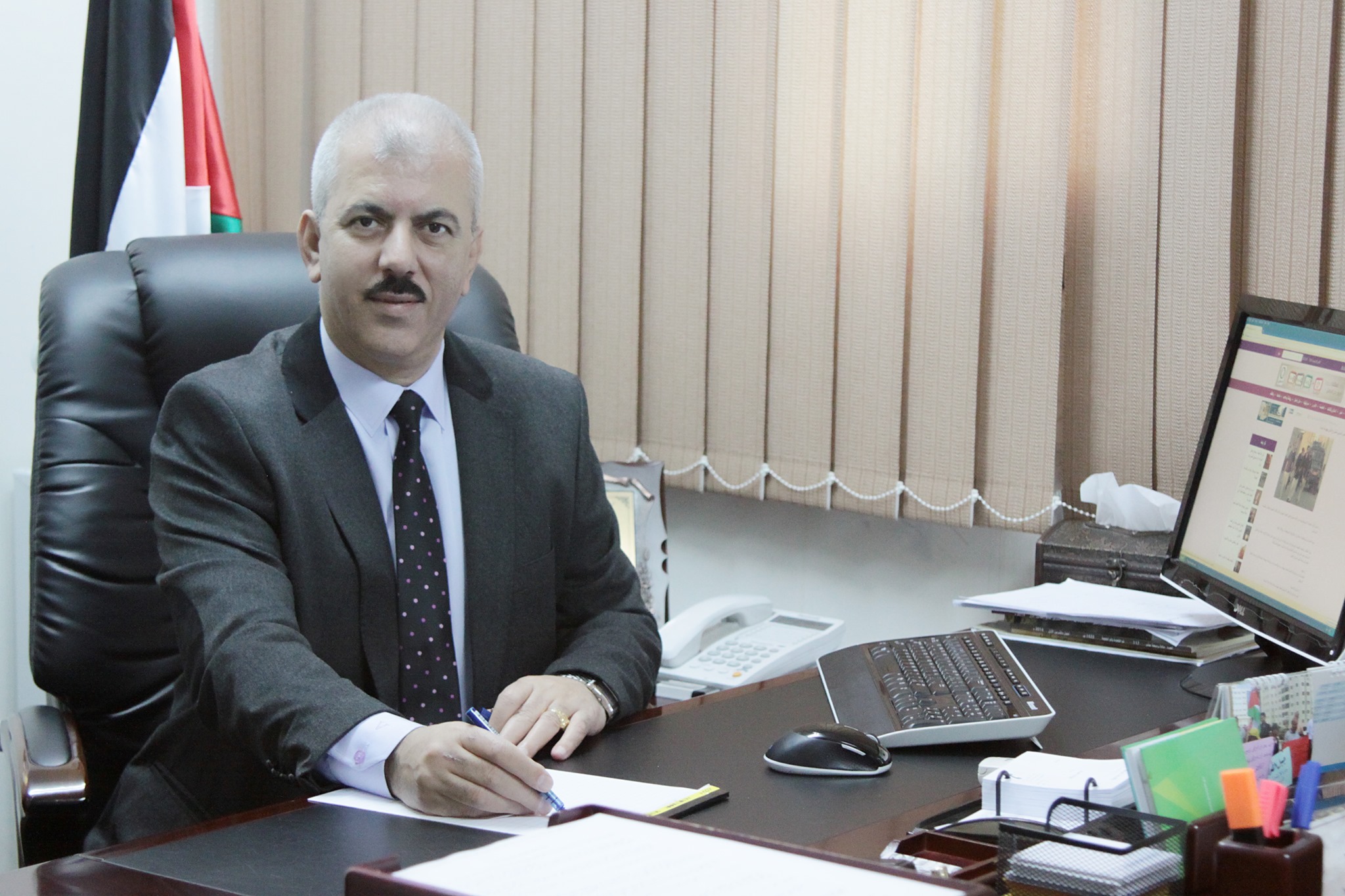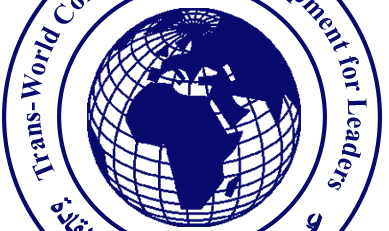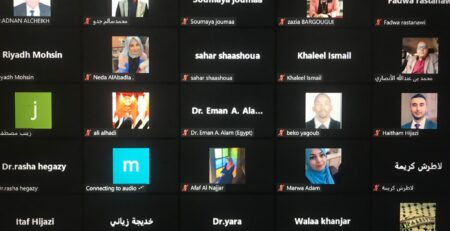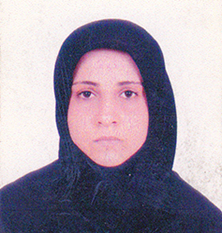International Conventions and Organizations to which Palestine has Acceded!
“Knowledge puts you in the ranks of the wise people, work puts you in the ranks of the successful people, and understanding puts you in the ranks of the happy people.”
The Palestinian diplomacy, headed by His Excellency the President of the State of Palestine, Mahmoud Abbas “Abu Mazen”, was able to achieve a number of achievements on the international scene, as follows:
- On the 31/10/2011 Palestine was accepted as a full member of UNESCO, 107 countries voted in favor of the resolution, and 14 countries voted against the resolution, while 49 countries abstained.
- On the 29/ 11/ 2012 Palestine was granted the status of a non-member state in the United Nations. The resolution was supported by 138 countries, 9 opposed, and 41 countries abstained.
- On the 1/4/2015, the International Criminal Court announced the official accession of the State of Palestine to the court, which is based in The Hague, the Netherlands, to become the 123 member of the court, which was established in 2002.
- On the 11/9/ 2015, the United Nations authorized the raising of the Palestinian flag over its headquarters. The resolution was adopted by 119 votes in favour, eight countries opposed, while 45 countries abstained.
- On the 27/9/2017 The INTERPOL General Assembly accepted Palestine as a member after 75 of its members voted on the resolution, 24 opposed it, and 34 abstained.
- On the 21/12/2017 128 countries voted in the United Nations General Assembly in favor of a resolution calling on the United States to withdraw its recognition of Jerusalem as the capital of Israel, while 9 countries objected, and 35 countries abstained from voting in favor of the resolution that Washington preempted by threatening to stop the financial aid it provides to those countries.
- The State of Palestine has also joined many international treaties and agreements, including but not limited to:
List of treaties and agreements to which the State of Palestine is a party:
The following is the list of agreements and treaties that President Mahmoud Abbas signed documents and applications for the accession of the State of Palestine to:
- The Hague Convention Relating to the Laws and Customs of War on Land and its Annex: Regulation relating to the Laws and Customs of War on Land.
- International Convention for the Suppression and Punishment of the Crime of Apartheid.
- Convention on the Prevention and Punishment of the Crime of Genocide.
- United Nations Convention against Corruption.
- Convention against Torture and Other Cruel, Inhuman or Degrading Treatment or Punishment.
- International Convention on the Elimination of All Forms of Racial Discrimination.
- Vienna Convention on the Law of Treaties.
- Convention on the Rights of Persons with Disabilities.
- Convention on the Elimination of All Forms of Discrimination against Women.
- Convention on the Rights of the Child.
- Vienna Convention on Diplomatic Relations.
- Vienna Convention on Consular Relations.
- The Four Geneva Conventions and Additional Protocol I to the Conventions: Protection of Victims of Armed Conflicts of an International Character.
- International Covenant on Civil and Political Rights.
- International Covenant on Economic, Social and Cultural Rights.
- The Convention on the Prevention and Punishment of Crimes against Internationally Protected Persons, including Diplomatic Personnel, Importance: The protected persons are the Head of State, any Head of Government or Minister of Foreign Affairs, and not to attack them or their workplace or to endanger their freedom. In addition to diplomats. The occupation can be held accountable based on Article 3 by extraditing the perpetrator of the crime to the state party or holding them accountable.
Obligation: Change the law to allow punishment for crimes against protected persons.
In the absence of reservations on the provisions, it will be necessary to extradite and receive criminals who carry out criminal acts against diplomats and internationally protected personalities.
- Convention on the Non-Applicability of Statutory Limitations to War Crimes and Crimes Against Humanity.
Importance: War crimes and crimes against humanity are among the most serious crimes in international law.
There is no statute of limitations for these crimes, regardless of when they were committed.
Obligations: The law must include provisions that clarify in detail the concept and classification of serious crimes and crimes against humanity.
The clear and explicit provision in the internal law that these acts mentioned constitute a breach of the law.
To include some of the penalties imposed in the agreement and incorporate them into the applicable penal code.
- United Nations Convention against Transnational Organized Crime.
Importance: Criminalization of transnational organized crimes, including money laundering and corruption, strengthening international cooperation in this regard in order to confiscate criminals’ money, return them to origin, extradite and return criminals, provide assistance to Palestine in the matter of strengthening Palestinian legal and technical institutions, equip Palestinian techniques to confront dangers, and control borders And the electronic field and the prevention of electronic crime, as hackers stormed the Palestinian maids previously, and the occupation was accused of this act.
Imposing Palestinian sovereignty over land and sea borders.
Obligations: Amend the Palestinian law to criminalize this type of crime and prepare prisons and regulations for this.
- Basel Convention on the Control of Transboundary Movements of Hazardous Wastes and Their Disposal.
Importance: Finding mechanisms to hold the occupation accountable for the use of Palestinian land to bury its waste, in addition to the settlements and their waste. The necessity of defining hazardous waste and sending it to the occupation, and to the international community, and any waste that is illegally entered is considered a crime.
Obligations: inform the General Secretariat of the waste that we consider dangerous, and amend the law to add hazardous waste.
- The Law of the Sea Convention, its importance: imposing our sovereignty on the territorial waters, considering its violation as aggression, and the right to obtain our water rights and fish resources, and there is an arbitration mechanism in the agreement, knowing that Israel is not a member of it. Preserving our economic rights in the Dead and Mediterranean Bahrain.
In addition to the inadmissibility of anyone exploiting the Palestinian continental cliff, and Palestine’s sovereignty over its economic rights to the cliff. There is a special court for disputes, and to him is accountability.
Obligations: Establishing special law and arrangements regarding seas, marine and water resources.
- Convention on Biological Diversity.
Importance: the universality of this agreement and its emphasis on the right of peoples to control their resources and their sovereignty over them, and the impact of the occupation and its settlements, settlers and practices on the biological diversity in Palestine, in addition to the technical assistance provided by this agreement to the threatened areas.
Commitments: need to develop a national plan to conserve biodiversity and laws to conserve nature. Part of it is to hold the occupation accountable for its practices. Define protected sites
- Convention on the Law of the Non-Navigational Uses of International Watercourses 1997.
Its importance: the equal participation of water resources, waterways and rivers, and this will embody international law towards binding Israel with the rules of this agreement. Palestine will be one of the first countries to accept this agreement.
- Additional Protocol II to the Geneva Convention Concerning the Protection of Victims of Armed Conflicts of a Non-International Character Its importance: to protect civilians during war, to prevent the occupation from taking hostages, to protect medical personnel, and not to target them, for the wounded and shipwrecked, the occupation must protect holy places and monuments, and prohibit Forced deportation.
- Third Protocol to the Geneva Conventions Additional Annex to the Adoption of a Distinctive Sign Obligations: Respect the emblems of ambulance and civil defense.
- Rome Statute of the International Criminal Court.
Importance: dealing with the crimes committed by the occupying state against the Palestinian people, holding the occupation accountable and bringing its leaders and settlers to international justice.
Crimes: the crime of genocide, crimes against humanity, war crimes, and the crime of aggression.
Obligations: People from Palestine will be held accountable if they are accused of committing crimes. It is within the powers of the court, and Palestinian laws should be amended.
- Women’s Political Rights Convention.
This convention obligates member states to ensure that women have the same right to vote in elections and to hold public office as men, the importance is the affirmation of women’s rights.
- Convention on the Safety of United Nations and Associated Personnel.
This agreement aims to ensure that the host countries conduct the tasks of the United Nations operations in their areas, and the tasks of these are limited to maintaining international peace.
- The 1958 New York Convention on the Recognition and Enforcement of Foreign Arbitral Awards.
The importance of the New York Treaty lies in the recognition and enforcement of judgments of foreign arbitrators issued in other countries.
- Agreement on the Privileges and Immunities of the International Criminal Court The signatory states of the Rome Statute give immunities and privileges to court officials to complete their tasks without which they cannot act independently and effectively. This agreement also grants the transfer of witnesses and evidence outside the country.
- Declaration under the Treaty of Rome.
- Treaty on the Non-Proliferation of Nuclear Weapons.
Its importance: This agreement affirms that nuclear proliferation threatens world peace and the future of humanity, and given that Israel is a nuclear state and refuses to comply with international law, especially in placing its facility under surveillance by the Atomic Energy Agency, it can be held accountable, especially since we will be affected in the event of leaks and nuclear danger, in addition He indicated that it is in Palestine’s interest to make the Middle East a region free of weapons of mass destruction, especially nuclear weapons.
- Convention on Prohibitions or Restrictions on the Use of Certain Conventional Weapons Which May Be Deemed to be Excessively Injurious or to Have Indiscriminate Effects (1980) and the following protocols:
Invisible fragments, incendiary weapons, explosive remnants of war Importance: States parties and parties to an armed conflict must take action to clear, remove or destroy explosive remnants of war (Article 3), and record information relating to the use or disposal of Explosive ordnance, retention and transmission of that information (Article 4). States parties and parties are also obligated to take all feasible precautions to protect civilians (Article 5) and humanitarian missions and organizations (Article 6). States Parties that are in a position to provide cooperation and assistance for marking, clearance, removal, destruction and victim assistance, among others, should do so (arts. 7 and 8). Protocol V entered into force on 12 November 2006.
This agreement can be used to get Israel to contribute to cleaning up the remnants of its army training and not to displace civilians under the pretext of training its forces, in addition to the 19 minefields scattered among Palestinian homes in the West Bank.
Not to allow Israel to use excessively harmful weapons such as white phosphorous and other weapons.
Demanding the prohibition of the use of force against the sovereignty, territorial integrity, or political independence of any state;
It is prohibited to use methods and means of warfare intended to cause extensive damage to the natural environment, as happened in the waters of the Gaza Strip.
This agreement is related to the Geneva Convention.
Obligations: Not to use these weapons, and this exposes us to accountability in the event that some militias use this type of locally manufactured weapons. At least two protocols must be authenticated.
- Convention on cluster munitions.
Palestine is an observer and is attending the agreement conference as an observer, and there is a Palestinian declaration of our desire to enter into this agreement. A national commission was formed to follow up on issues of weapons, explosives and mines, and to submit a voluntary report to the United Nations.
Importance: It forms part of the tools of international humanitarian law.
Obligations: Forming a national body to follow up on this file, and amendments to the law concerning cluster munitions.
Submit a report on the achievements, and make financial contributions at the request of the Director General.
Despite the many attempts of the Israeli occupation to put all obstacles in the way of Palestine joining the various international organizations, especially those concerned with following up the violations and crimes of Tel Aviv, Palestine has been able in recent years to secure a seat for it within international institutions, the latest of which was achieved today, Wednesday, after its acceptance Within the International Criminal Police Organization “Interpol”. The following is a review of the most important organizations that Palestine has joined since 2004.
On September 27, 2017: The International Criminal Police Organization “INTERPOL” accepts Palestine as a member with a vote of 74 countries with the resolution.
On April 4, 2016: The Ministers of Trade of the countries of the Agadir Group (Egypt, Tunisia, Morocco, and Jordan) agree to Palestine’s accession to the Agadir Agreement along with the State of Lebanon, allowing Palestine to import raw materials and production components needed for the Palestinian industry from the “Agadir” countries. The countries of the European Union, and carrying out the necessary manufacturing operations on them, and re-exporting them to the markets of the Euro-Mediterranean region, exempt from customs duties, in addition to benefiting from a number of programs.
On March 14, 2016: Palestine obtains full membership in the Permanent Court of Arbitration, after deciding the vote with 57 votes in approval, 24 abstentions, and no opposition.
On December 12, 2015: Palestine officially joins the United Nations Framework Convention on Climate Change (UNFCCC), as the agreement constitutes a general framework for international efforts in addressing issues of a global and humanitarian nature.
On October 6, 2015: Palestine joins the COMSAT Educational Foundation, which provides opportunities for Palestinian students to exchange experiences with the member countries of the institution.
On August 12, 2015: The General Assembly of the International Skills World Organization, in the work of its 43rd session held in the Brazilian city of Sao Paulo, votes in favor of the formal accession of the State of Palestine to its membership, to be the 75th country in the organization. It specializes in developing vocational and technical education and training in its member states, and seeks to organize an international skills competition every two years in one of its member states.
On May 18, 2015: Palestine officially joins the World Customs Organization.
On April 1, 2015: Palestine officially becomes a member of the International Criminal Court.
On December 31, 2014: Palestinian President Mahmoud Abbas signs a document to join 20 international organizations, treaties and conventions, including: accession to the International Criminal Court, the charter that paves the way for Palestine’s membership in the Rome Charter, and the declaration to accept Articles 12 and 13 of the Rome Charter, and the Charter of Women’s Political Rights The Charter for the Burying of Solid and Noxious Materials in the Areas of States Beyond Their Borders, the Charter for the Non- Limitation of War Crimes, the Treaty on the Non-Proliferation of Nuclear Weapons, the Certain Conventional Arms Reduction Treaty, the Treaty on the Limitation of Cluster Bombs, Protocol 2 of the Geneva Conventions of 1949, and Protocol 3 of the Geneva Conventions of 1949. The Geneva Conventions of 1949, the Protocol for the Protection of International Persons, the Charter of Commitment to Apply the Provisions of War Crimes and Against Humanity, and the declaration of the State of Palestine as a state that abides by all international charters, institutions and norms.
On November 26, 2014: The International Association of Prosecutors approves the request of the Public Prosecution Office of the State of Palestine to join it, making Palestine the 147th country in this association, after discussions with a number of prosecutors of the state parties.
On November 22, 2014: The European Union of Journalists decides to accept the Palestinian Journalists Syndicate as an observer member, during its annual meetings held in the Russian capital, Moscow.
On September 16, 2014: Palestine joins the declaration of the European Energy Charter, which was first adopted in The Hague, Netherlands, in 1991.
On October 6, 2013: Palestine joins the Euro-Mediterranean Youth Network. Palestine’s accession to the Network represents a space for Palestinian youth and youth civil work institutions to benefit from the network’s various programs, and to create twinning and partnership relations with active youth institutions in the member states.
On September 12, 2013: The Palestine Chefs Club joins the International Chefs Club.
On April 16, 2013: The Board of Directors of the Standards and Metrology Institute for Islamic Countries approves the accession of the Palestinian Standards and Metrology Institution to the Institute.
On April 19, 2012: The International Monetary Fund accepts Palestine’s membership in the SDDS Standard, which includes 22 indicators, allowing all users to view and use them according to their needs. These indicators will also be placed on the electronic board, to publish data in the International Monetary Fund, including Palestine on the international statistical map.
On November 29, 2012: The United Nations General Assembly votes in favor of Resolution No. 67/19, according to which Palestine obtained the status of a non-member state of the United Nations, during the 67th meeting of the General Assembly, which is the International Day of Solidarity with the Palestinian People. The proposal was submitted by the representative of Palestine at the United Nations.
On October 31, 2011: Palestine obtains full membership in the UNESCO, the Educational, Scientific and Cultural Organization.
On October 27, 2011: The coordination meeting of the heads of delegations of the member states of the Islamic Educational, Scientific and Cultural Organization (ISESCO), decides to support the accession of the State of Palestine as a full member to UNESCO.
On January 25, 2011: Palestine formally joins the membership of the International Chamber of Commerce, by signing the agreement, at the headquarters of the International Chamber of Commerce in Paris. Between Palestinian, Israeli and international companies, and through globally trusted mechanisms.
On January 7, 2011: Approval of Palestine’s full and official membership in the Asian Military Sports Confederation (CISM), in Bahrain. This membership opens up great prospects for Palestinian military teams for foreign participation, training courses, and military sports activities in all their activities.
On January 17, 2007: The Energy Ministers of the Seven Electricity Interconnection Countries agree in principle, at their eleventh meeting, for Palestine to join the interconnection countries, pending the completion of the technical and economic studies and the legal procedures required for accession.
On September 29, 2005: Approval of Palestine’s application for observer membership in the World Intellectual Property Organization (WIPO).
On June 7, 2005: Palestine officially joins the Euro-Mediterranean Academic Network.
On May 31, 2005: During the Lubelian Conference in the Republic of Slovenia, Palestine obtained membership in the NATO Parliament, after parliament members voted unanimously to grant Palestine a seat as an “observer”.
On November 30, 2004: Palestine joins the Austria-based Organization for Security and Cooperation as an associate member, on the sidelines of the Euro-Mediterranean Conference held in The Hague. The organization includes 55 countries, and that organization works in all areas related to security in the world, and its most prominent goals are to limit the spread of weapons, especially weapons of mass destruction, and to encourage preventive diplomacy in resolving conflicts.
On September 11, 2015, the United Nations authorized the raising of the Palestinian flag over its headquarters. The resolution was adopted by 119 votes in favor and eight countries opposed, while 45 countries abstained.
On September 27, 2017, the INTERPOL General Assembly accepted Palestine as a member after 75 of its members voted on the resolution, 24 opposed, and 34 abstained.
On December 19 the United Nations General Assembly, on Tuesday, approved by a majority a resolution affirming the Palestinians’ right to self-determination, which received the support of 176 countries, against the opposition of 7 countries, in addition to the reservation of 4 other countries to vote.
On December 20, 2017, the United Nations General Assembly voted on a resolution affirming the right of the Palestinian people to sovereignty over their natural resources with a majority of 163 countries in favor of the resolution, while six countries voted against it, and 11 countries abstained.
On December 21, 2017, 128 countries voted in the United Nations General Assembly on Thursday to approve a resolution refusing to recognize US President Trump’s declaration of Jerusalem as the capital of Israel, while nine countries rejected the General Assembly resolution and 35 countries abstained.
The State of Palestine has also joined dozens of international treaties and agreements, including but not limited to:
- Rome Statute of the International Criminal Court.
- Agreement on the Privileges and Immunities of the International Criminal Court.
- Convention on the Non-Applicability of Statutory Limitations to War Crimes and Crimes Against Humanity.
- United Nations Convention against Transnational Organized Crime.
- Convention on the Fundamental Rights of Women.
- United Nations Convention on the Law of the Sea.
- Convention on Cluster Munitions.
- The Hague Convention Relating to Your Respect for the Laws and Customs of War on Land, and the Regulation relating to the Laws and Customs of War on Land.
- The four Geneva Conventions of 1949 and the First Additional Protocol to the Conventions relating to the Protection of Victims of Armed Conflict of an International Character.
- International Convention for the Suppression and Punishment of the Crime of Apartheid.
- International Convention on the Elimination of All Forms of Racial Discrimination.
- Convention on the Prevention and Punishment of the Crime of Genocide.
- International Covenant on Civil and Political Rights.
- International Covenant on Economic, Social and Cultural Rights.
- Convention against Torture and Other Cruel, Inhuman or Degrading Treatment or Punishment.
- Convention on the Elimination of All Forms of Discrimination against Women.
- Convention on the Rights of the Child.
- Convention on the Rights of Persons with Disabilities.
- United Nations Convention against Corruption.
- Vienna Convention on Diplomatic Relations.
- Vienna Convention on Consular Relations.
- Vienna Convention on the Law of Treaties… etc.
- United Nations Preliminary Agreement on Climate Change.
- Convention on the Recognition of Foreign Arbitral Awards.
- Convention on Biological Diversity.
- UNESCO Convention on Measures to Prohibit and Prevent the Import, Export and Transfer of Ownership of Cultural Property.
- UNESCO Convention for the Protection of the Underwater Cultural Heritage.
- Convention on the Protection of Diplomats.
- Convention for the Safeguarding of the Intangible Cultural Heritage.
- The Hague Convention for the Protection of Cultural Property in the Event of Armed Conflict.
- Convention against torture.
- International Convention against Doping in Sport.
The list also includes: the Treaty for the Suppression of Nuclear Terrorism, the Convention on the Physical Protection of Nuclear Material, the Rotterdam Treaty against the Traffic in and Use of Hazardous Materials, the Stockholm Convention against the Risks of Exposure to Partial Organic Pollutants, the Barcelona Convention for the Protection of the Mediterranean Sea from Pollution, and the Convention on Environmental Change.
It also includes: the Treaty against Torture and Cruel, Inhuman or Degrading Treatment or Punishment, the Chemical Weapons Convention, the Geneva Protocol on the Prohibition of the Use of Chemical Weapons, the Biological Weapons Convention, the Convention against the Development, Production and Use of Anti-Personnel Mines, the Treaty Regulating the Sale of Arms, the United Nations Convention, Concerning contracts for the marketing of international goods, the Narcotics Convention, the Psychotropic Substances Convention, the Customs Convention on the International Transport of Goods, the Convention against Child Trafficking, the Prostitution and Sexual Exploitation of Children, the Convention to Prevent, Suppress and Punish Trafficking in Persons, and finally Palestine’s accession to the Treaty on the Prohibition of Nuclear Weapons.
This shift in the approach of the United Nations and the countries under its banner constitutes a victory for the Palestinian cause, and it is also a glimmer of hope for the Palestinians to obtain their full rights.











Leave a Reply